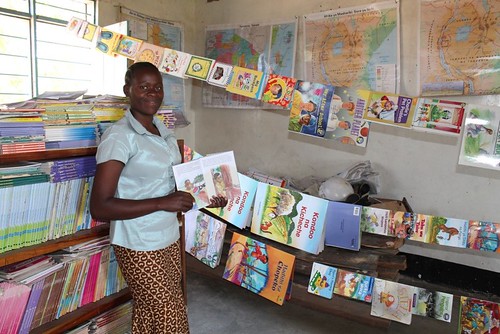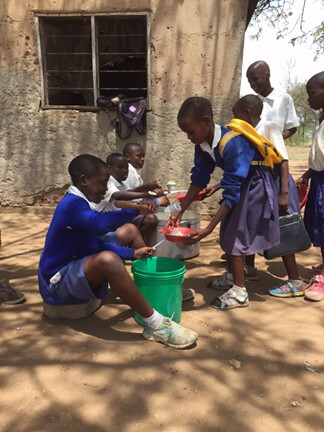
USDA’s McGovern–Dole International Food for Education and Child Nutrition Program helps reduce hunger and improve literacy and primary education in low-income, food-deficit countries around the world. Today, USDA’s Foreign Agricultural Service (FAS) works hand-in-hand with non-profit charitable organizations and others to operate McGovern-Dole programs in 25 countries. One of these partnerships is with Project Concern International (PCI) for a multifaceted school feeding program in northern Tanzania.
FAS caught up with PCI Operations Officer Kara West while visiting Tanzania to glean an insider’s perspective on the program.
1. Why did PCI begin this program in Tanzania?
PCI began implementing a McGovern-Dole program in Tanzania in 2010 when tens of thousands of children in the Mara region lacked access to basic education as a consequence of food insecurity, challenging environments and limited resources for learning. With the assistance of USDA, PCI now provides school meals daily, which is often the only meal of the day for many children, along with a series of holistic interventions in order to improve literacy and primary education.
2. Describe a typical day living in the communities you reach.
One of those children who is now benefiting from the program is 14-year-old Violet. The roosters crowing early in the morning cues the start of Violet’s day and she is ready to help her mother with small chores around the home before participating in the morning prayers. While her parents are off to work in the fields for the day, Violet skips to school to meet her friends and attends a lesson from her teacher who has received a number of training sessions from PCI to improve teaching methodologies. In the early afternoon, she eats a nutritious meal of USDA-provided rice, fortified vegetable oil and beans, complemented with bright green amaranth leaves donated by school parents. Violet’s favorite time of the day is her trip to the library where she enjoys reading one of her favorite books Chatu na Mbwa or The Python and the Dog. Towards the end of her school day, she attends the “Healthy Choices Club” meeting where she learns about healthy eating and exercise. When Violet returns home in the late afternoon, she helps her mother fetch water to use for the next day. She lends a hand cooking dinner and then enjoys one of the library books she brought home before she falls asleep.
3. How has the program impacted the people it serves?
Every time I visit Tanzania, the gratitude for USDA and PCI is evident to me when I see the smiling faces and hear the grateful words from students, teachers, parents and local government administrators. On my trip, the teachers and students greeted me by saying “Karibu” in Swahili or “You are welcome here” as they repeated “Asante sana” or “Thank you so much”. The impact of the program has been profound in so many aspects. In 2012, the average attendance rate of students was 73.6 percent and it is now 87 percent. Furthermore, USDA and PCI were recently recognized by Mara’s Regional Education Officer as having a positive effect on the outcomes of the recent standard exams in the Mara region which is now in 13th place out of 26 regions (previously in 17th place).
For more on-the-ground coverage from Tanzania, including program challenges and future steps, read Kara’s complete story on the FAS website.

